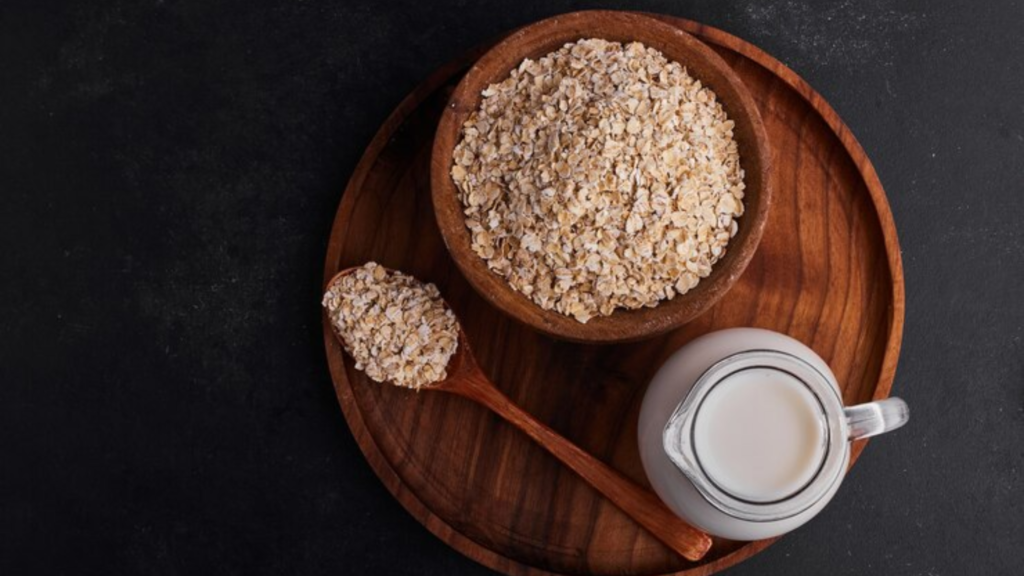Protein powder has become a popular supplement for fitness enthusiasts and health-conscious individuals seeking to achieve their nutritional and fitness goals. With a wide array of options available in the market, finding the perfect protein powder can be overwhelming. But fear not! This comprehensive guide will walk you through the process of selecting the right protein powder tailored to your individual needs.
Types of Protein Powders-
A. Whey Protein
Whey protein, derived from milk, is one of the most widely used protein supplements. It boasts quick absorption, making it ideal for post-workout recovery and muscle building. If you’re aiming for lean muscle gain, whey protein is a top choice. However, keep in mind that individuals with lactose intolerance might want to explore other options.
B. Casein Protein
Also sourced from milk, casein protein differs from whey as it is slow-digesting. This characteristic makes it suitable for sustained protein release, making it an excellent option before bedtime or when you need a slower protein source. It’s not recommended for those with dairy allergies, so consider this if you have dietary restrictions.
C. Soy Protein
For those following a vegetarian or vegan lifestyle, soy protein offers a plant-based alternative. Not only does soy protein provide all essential amino acids, but it may also have added health benefits due to its plant origins. However, if muscle building is your primary goal, animal-based proteins might be more effective.
D. Pea Protein
Pea protein has gained popularity as a hypoallergenic, plant-based protein source. It is highly digestible, making it suitable for individuals with dairy, soy, or gluten allergies. While it might not be as palatable as other options for some, its benefits for those with dietary restrictions are undeniable.
E. Hemp Protein
Hemp protein is another plant-based option, rich in omega-3 fatty acids. It’s easily digestible and an excellent choice for vegans and those with allergies to other protein sources. Keep in mind that hemp protein’s protein content may be lower than other options.
F. Brown Rice Protein
Hypoallergenic and suitable for individuals with dietary restrictions, brown rice protein offers all essential amino acids. However, some might find its texture slightly gritty, which can affect its appeal to certain consumers.

Considerations For Choosing Protein Powder-
A. Fitness Goals
Begin by identifying your fitness objectives. Are you looking to build muscle, lose weight, or improve overall nutrition? Different protein powders cater to varying goals, so understanding yours will help narrow down your options.
B. Dietary Restrictions
Take into account any dietary restrictions you may have. Whether you’re lactose intolerant, vegan, or have specific food allergies, there’s a protein powder suitable for you. Ensuring the product aligns with your dietary needs is essential for a successful supplement choice.
C. Allergies
If you have any food allergies or sensitivities, carefully read the product labels. Avoid protein powders that contain allergens that may cause adverse reactions. Opt for allergen-free alternatives to ensure a safe and pleasant supplementation experience.
D. Taste Preferences
We all have different tastes, and the same goes for protein powders. To avoid committing to a large container of a product you might not enjoy, try sample packs first. Finding a protein powder with a flavor that suits your palate will make it easier to incorporate into your daily routine.
E. Ingredient Quality
Pay attention to the ingredients list and nutritional information. Avoid protein powders with excessive additives, artificial flavors, and unnecessary fillers. Opt for products with natural and high-quality ingredients to ensure you’re getting the best nutritional value.
F. Price Range
Set a budget for your protein powder purchase. Protein powders come in various price ranges, so finding one that fits your budget while meeting your needs is essential. Compare prices and consider the cost per serving to determine the best value for money.
Top Tips For Selecting Protein Powder-
A. Reading Labels and Nutritional Information
Always read the labels and nutritional information before making a purchase. Look for the protein content per serving and the serving size. Check for any additional nutrients and potential allergens that might affect your decision.
B. Checking for Additives and Artificial Ingredients
Avoid protein powders with excessive additives or artificial flavors. Choose products with minimal processing and natural ingredients for a healthier supplementation experience.
C. Seeking Professional Advice
If you’re unsure which protein powder is right for you, don’t hesitate to seek professional advice. Consult with a healthcare professional or a nutritionist to receive personalized recommendations based on your health status and fitness goals.
D. Trying Sample Packs
Experiment with sample packs of different protein powders. This will allow you to test various flavors and types to find the one that suits you best before investing in a larger container.
Conclusion-
Choosing the right protein powder is crucial to support your fitness journey and overall well-being. By considering your fitness goals, dietary preferences, and any allergies, you can make an informed decision. Always prioritize ingredient quality, taste, and seek professional guidance when needed. With the perfect protein powder, you’ll be well on your way to achieving your health and fitness aspirations. Happy supplement hunting!
![]()
